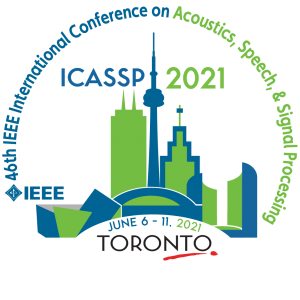The Centre for Doctoral Training in AI and Music (AIM CDT) has opened its call for September 2021 entry.
Application deadline: Thursday 27 January 2021
At least 14 new PhD students will be selected to join the AIM 2021 cohort. If you are willing to move to London and work with us at the AIM CDT that is part of the Centre for Digital Music (C4DM), a world-leading research group in the area of music and audio technology, we welcome your application.
A leading PhD research programme aimed at the Music/Audio Technology and Creative Industries, the UKRI Centre for Doctoral Training in Artificial Intelligence and Music (AIM CDT) will train a new generation of researchers in the areas of Music Understanding, Intelligent Instruments and Interfaces, and Computational Creativity.
The AIM CDT takes a cohort-based approach; all students start in September and undertake a bespoke programme of taught modules in years 1-2 (6 modules to complete 90 credits). Another pillar of the programme and the cohort building is the Researcher skills development training throughout years 1-4 aimed at addressing academic and industry professional needs of the students.
You will be able to select your supervisory team from a list of over 30 academics based at C4DM and as a PhD student you will undertake a personalised programme of research; there will also be opportunities for industry and other placements, and international exchanges.
Who should apply?
You have a willingness to pursuit and complete a PhD in the intersection of AI and music, you have showed engagement and work to get great results, you are committed to getting upper marks in your studies and want to develop your critical thinking skills to undergo research. Programming skills are highly desirable, but not essential, if you can show complementary strengths. Equally, musical training of any kind is desirable, but not a prerequisite.
You must hold or be completing a Masters degree at distinction or first class level, or equivalent, in Computer Science, Electronic Engineering, Music/Audio Technology, Physics, Mathematics, or Psychology.
Visit our website and Contact us
For more information about the application process, please visit: https://www.aim.qmul.ac.uk/about/
For any enquiries, contact us at aim-enquiries@qmul.ac.uk. Alternatively, feel free to contact any of the supervisors or C4DM academics with any questions you may have.
Current AIM supervisors list: https://www.aim.qmul.ac.uk/supervisors/
2021 AIM PhD research topics: https://www.aim.qmul.ac.uk/phd-topics/
We are waiting for your application and we hope you will join us next September!
 AIM students will be attending and presenting their work this year at the 2021 IEEE International Conference on Acoustics, Speech and Signal Processing (ICASSP 2021) from 6-11th of June. ICASSP is the world’s largest and most comprehensive technical conference focused on signal processing and its applications. ICASSP will be fully online for the second year. It will feature keynote talks from Karl Friston, Manuela Veloso, Bernhard Schölkopf, Ali H. Sayed and Mei Ling Helen Meng.
AIM students will be attending and presenting their work this year at the 2021 IEEE International Conference on Acoustics, Speech and Signal Processing (ICASSP 2021) from 6-11th of June. ICASSP is the world’s largest and most comprehensive technical conference focused on signal processing and its applications. ICASSP will be fully online for the second year. It will feature keynote talks from Karl Friston, Manuela Veloso, Bernhard Schölkopf, Ali H. Sayed and Mei Ling Helen Meng.